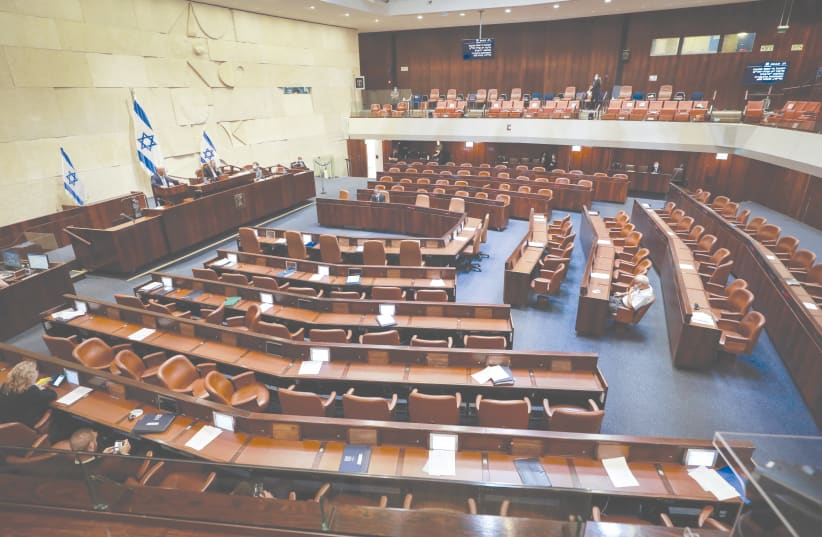Many of the eight parties that are slated to be part of Israel's 36th Knesset have demanded expensive conditions in exchange for their endorsement.
Ra'am has demanded a socio-economic plan for the Arab sector that could cost NIS 5-8 billion per year. Yesh Atid and Yisrael Beytenu require supplementary income for senior citizens and Holocaust survivors that are estimated to total more than NIS 2 billion. Yamina's demands for increased infrastructure in the West Bank would cost about NIS 1 billion. Labor's plan to offer free education to children under three would cost several billion shekels, as would its plans to upgrade transportation infrastructures and increase police funding. New Hope's demands for increased housing starts and a new university in the Galilee add another NIS 3-4 billion. Yisrael Beytenu's vision of developing the Negev with new hospitals, an airport, and a rail network is a few billion more. And the list goes on.
As Israel looks to rein in its budget deficit and push forward with its economic recovery as it emerges from the coronavirus crisis, can we commit to this all right now?
"I don't think they are really going to do all this," said Dr. Yitzhak Saporta, a senior lecturer at Tel Aviv University's Coller School of Management. "These plans don't match the way that most of the party heads think about economics."
"Most of the parties in the "change" bloc are right-wing conservatives economically, and the social spending agendas they are proposing are antithetical to that," Saporta said. "Yamina's Ayelet Shaked is so conservative she makes Milton Friedman look like a socialist. Yair Lapid's focus when he was finance minister was reducing the budget. So I'm not sure why the focus on economic buzzwords like 'inclusive economics.' Maybe Labor and Meretz support these types of policies, but increasing benefits for senior citizens and tripling the budget for the health basket is out of character for most of these parties."
Saporta thinks it comes down more to posturing for their constituents. "Perhaps Avigdor Liberman is saying he wants money for older people because many of his voters are older Russians," he said. "They are putting their entire wish lists into the coalition agreements, even though they know that these programs would require a long-term plan of at least five years, in coordination with the Finance Ministry and Bank of Israel. If they can do 10% of this plan, that would be wonderful."
We won't really know what will happen until the government passes a budget, Saporta said. "They say this government plans to pass a budget in its first hundred days," he said. "Once we see that, we'll be able to know what the plan really is."
The glut of coalition demands isn't surprising to Prof. Yotam Margalit of Tel Aviv University and a senior fellow at the Israel Democracy Institute. "There are two forces at play here," he said. "On one hand, whenever you have a new government coming in, there are always a lot of new demands. On the other hand, we are looking at a period where government expenditures rose dramatically during the pandemic, and we have been spending more than we're bringing in."
Margalit expects the government to pass a two-year budget in which, starting in 2022, taxes will be raised and government spending will be slashed in an effort to get control of the deficit.
